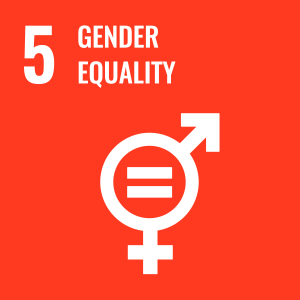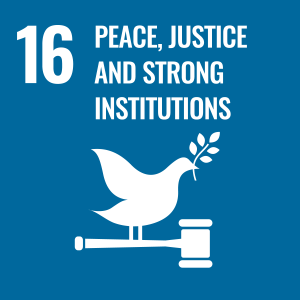
Dr Gabriela García García
About
Biography
I am a Lecturer in IR at the University of Surrey since September 2025. My research focuses on the securitisation of (forced) migration, from a critical security perspective. I analyse governmental-led security practices and discourses, and the lived experiences of security scripts on refugee and migrant populations, including its gendered, racialised and colonial dimensions. More recently, I have begun exploring decolonial pedagogies and approaches to IR and visual methods.
Prior to joining the University of Surrey, I was a Lecturer in Security Studies and IR for three years at the University of Exeter. I also held several Research Fellow/Associate positions at the University of Aberdeen, the University of Edinburgh, the University of Southampton, and University College Dublin. As a result, I have developed an interdisciplinary teaching portfolio covering IR, Politics, Qualitative Methods, Border and Migration Studies, and Latin American Studies.
I hold a PhD in Politics and International Relations (University of Aberdeen, 2021), an MSc in International Relations (University of Glasgow, 2014), and a BA Hons in Law (Universidad de Especialidades Espiritu Santo, UEES, 2012). Besides my academic background, I have practised immigration and asylum law in South America and have worked in the development and humanitarian sector.
Areas of specialism
My qualifications
Criminal Law Minor
ResearchResearch interests
- Critical security studies
- Securitisation Theory
- Migrant and Refugee inclusion and integration
- Migration and Refugee Governance
- Regional integration in South America
- Decoloniality
- Arts-based methdologies
- Visual IR
- Latin American Politics
- Migration in the Global South
EXTERNAL ENGAGEMENT
I have written blog posts on the topics of the securitisation of Venezuelan displacement and legal mobilisation in backsliding contexts.
Recently, I started documenting my experiential teaching approach in my blog Journeys with(in): Learning and Teaching Securitisation of Migration. In February 2024, we launched our student-led Collage Expo conveying their learning process in our POL3300 Securitisation of Migration module. You can visit the Expo here.
Research interests
- Critical security studies
- Securitisation Theory
- Migrant and Refugee inclusion and integration
- Migration and Refugee Governance
- Regional integration in South America
- Decoloniality
- Arts-based methdologies
- Visual IR
- Latin American Politics
- Migration in the Global South
EXTERNAL ENGAGEMENT
I have written blog posts on the topics of the securitisation of Venezuelan displacement and legal mobilisation in backsliding contexts.
Recently, I started documenting my experiential teaching approach in my blog Journeys with(in): Learning and Teaching Securitisation of Migration. In February 2024, we launched our student-led Collage Expo conveying their learning process in our POL3300 Securitisation of Migration module. You can visit the Expo here.
Teaching
POL1029 Introduction to International Relations
POL2038 International Political Economy
POLM038 INTERVENTION II: Theorising Intervention
POL0001 Contemporary Issues in Politics
POL3061 Dissertation
Sustainable development goals
My research interests are related to the following:




Publications
This article explores the analytical trajectory of desecuritisation strategies in the Global South through the case of Colombian refugees in Ecuador (2005–12). It maps desecuritisation strategies and their enabling and constraining factors against the backdrop of an entrenched infiltration discourse and an emerging rights-based discourse. The analysis of speeches, interviews, and policies demonstrates that governmental elites set in motion more transformative strategies when regional identity and emigration are raised in the political agenda. However, critical developments such as bilateral tensions and the lack of audience support sway desecuritisation towards more managerial strategies and ultimately, to resecuritisation. Shifting the empirical application of desecuritisation to this South American setting reveals the transformational capacity of desecuritisation strategies and reiterates the decisive role of the audience.
This article explores the gendered securitisation of humanitarianism through the lens of Venezuelan women who have fled to Brazil, as part of the largest migration flow in South America. By the end of 2022, the number of displaced Venezuelans had grown to seven million, half of whom were women and girls. Alongside humanitarian programmes, measures of migration control, policing and deterrence are now routinely implemented. This article explores the interplay between securitised policies and humanitarian programmes in the everyday experience of rights of Venezuelan migrant women and girls. We ask: what happens when migrant women reach Brazil, a supposed place of safety? Do they experience rights restitution and protection, or do they continue to be subject to everyday gendered humiliations? Building on fieldwork in Boa Vista and Manaus in 2020–2022, we explore migrant women and girls’ experiences with shelter and healthcare, two central pillars of humanitarian programmes. Contributing directly to literatures on migration management, humanitarianism and control, this article focuses on ‘the receiving end’ of securitised humanitarian practices and deploys a gender lens to reveal how securitised humanitarianism reproduces disciplinary dynamics of governance and creates gendered risks and vulnerabilities that erode migrant women and girl’s rights and agency in everyday life.